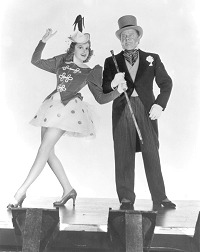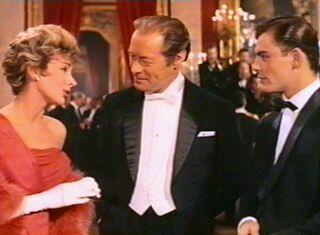And there is the final airfight, which the movie proudly announces is real air combat filmed by German and British fliers (the RAF and the Luftwaffe, if you prefer), which is one of those scenes that I have to watch again with closed captioning on in order to understand. Radio-talk with slang and poor audio might be realistic, but it's rather hard for the average viewer to understand.
Gary Merrill and Gregory Peck listen attentively
Summary: Gregory Peck (charming and lovely) plays a general who is put in the position of relieving his best friend as Commander of a group of army airmen in the early days of World War Two. As the movie itself explains, these soldiers doing highly dangerous daylight precision bombing were the first Americans involved in the fight and the only ones as of the fall of 1942 (i.e. before Pearl Harbor). This group has taken some hard hits and the Commander is too loyal to his men to send them out on another risky mission.
This is a great set-up for us to watch Peck's character take a different approach and whip the unit into shape, and it plays out well. Raises interesting questions about how hard and how far the military ought to push its men.
Costumes: Funny air force boots. Great sexy flight jackets (you can see why civilians would want to steal them). Button-up uniforms with ties (! do military uniforms have ties nowadays?).
Also, the planes have great names! Reluctant Dragon, Picadilly Lady, Fluffy Fuzz! What could be better?
Will probably not watch again soon, but it was a great one the first time.
Kimberly says: "It was alright."









